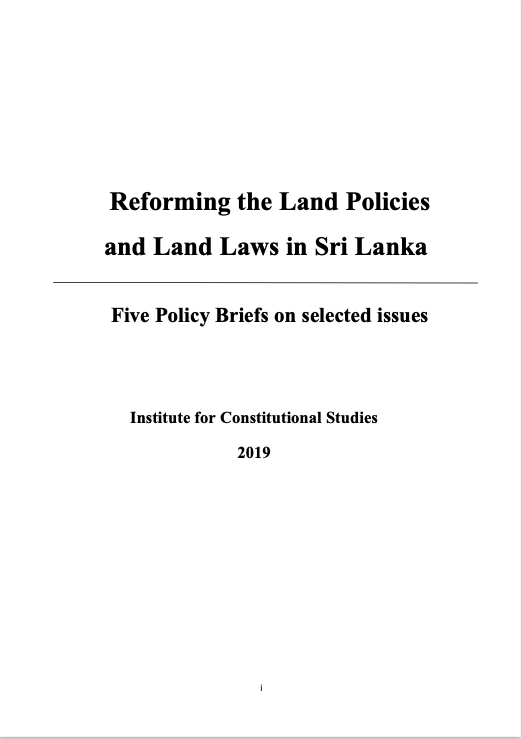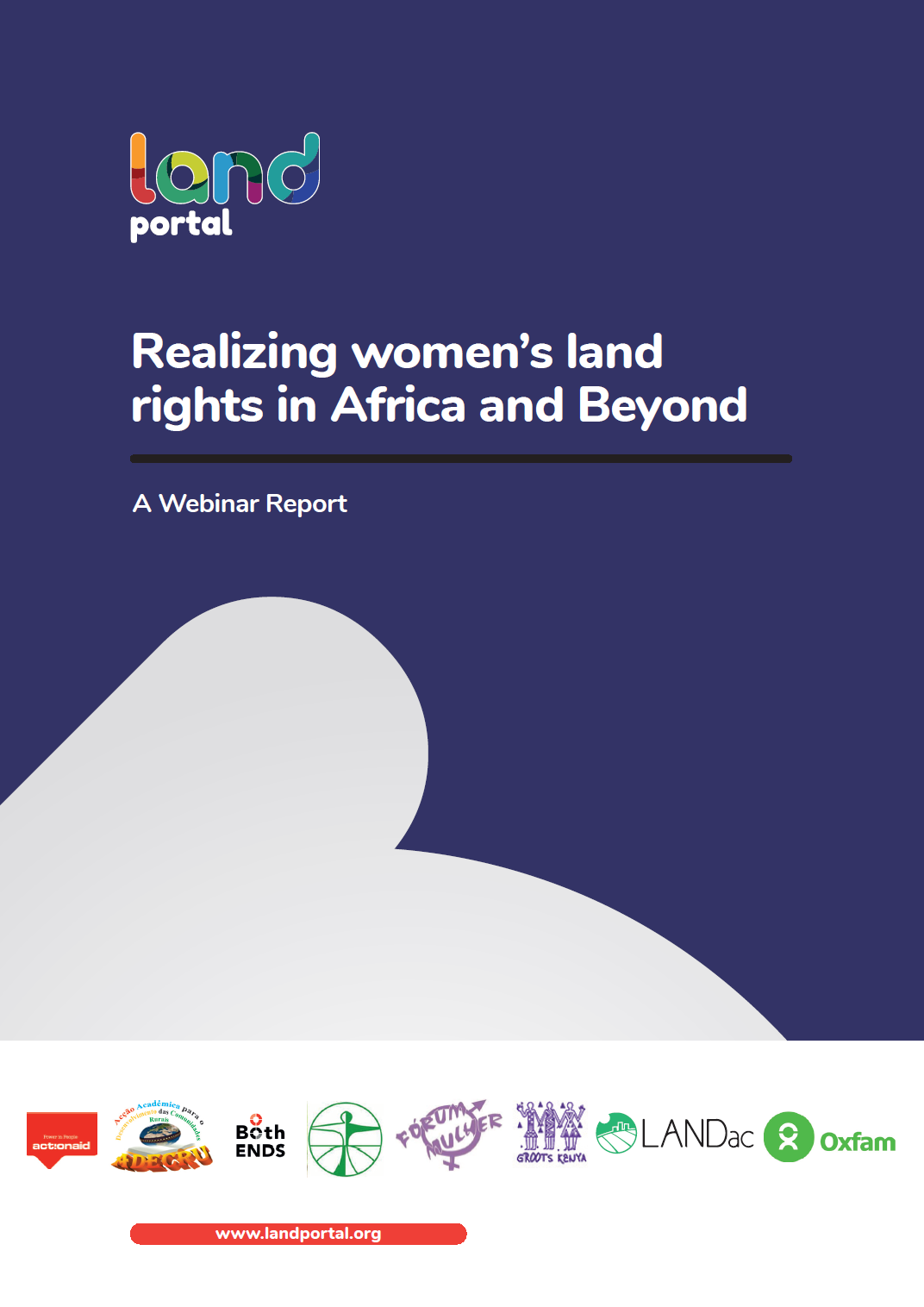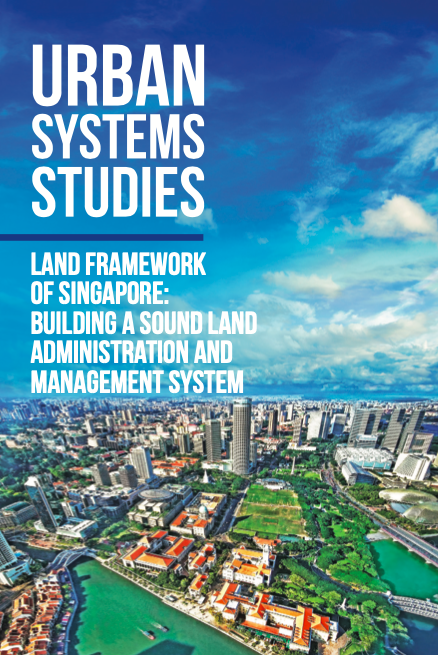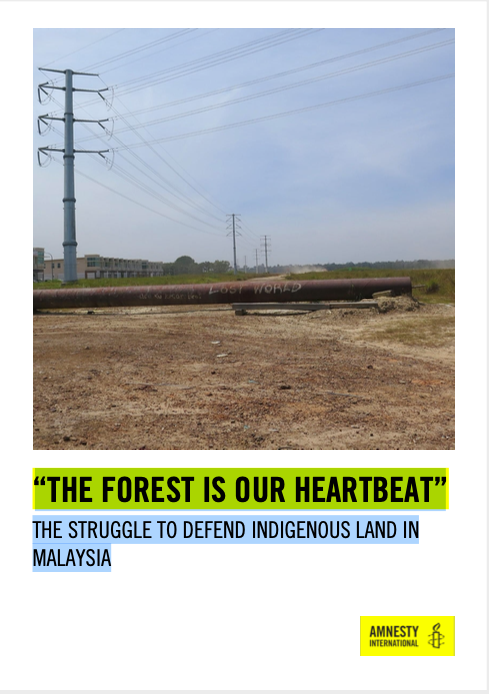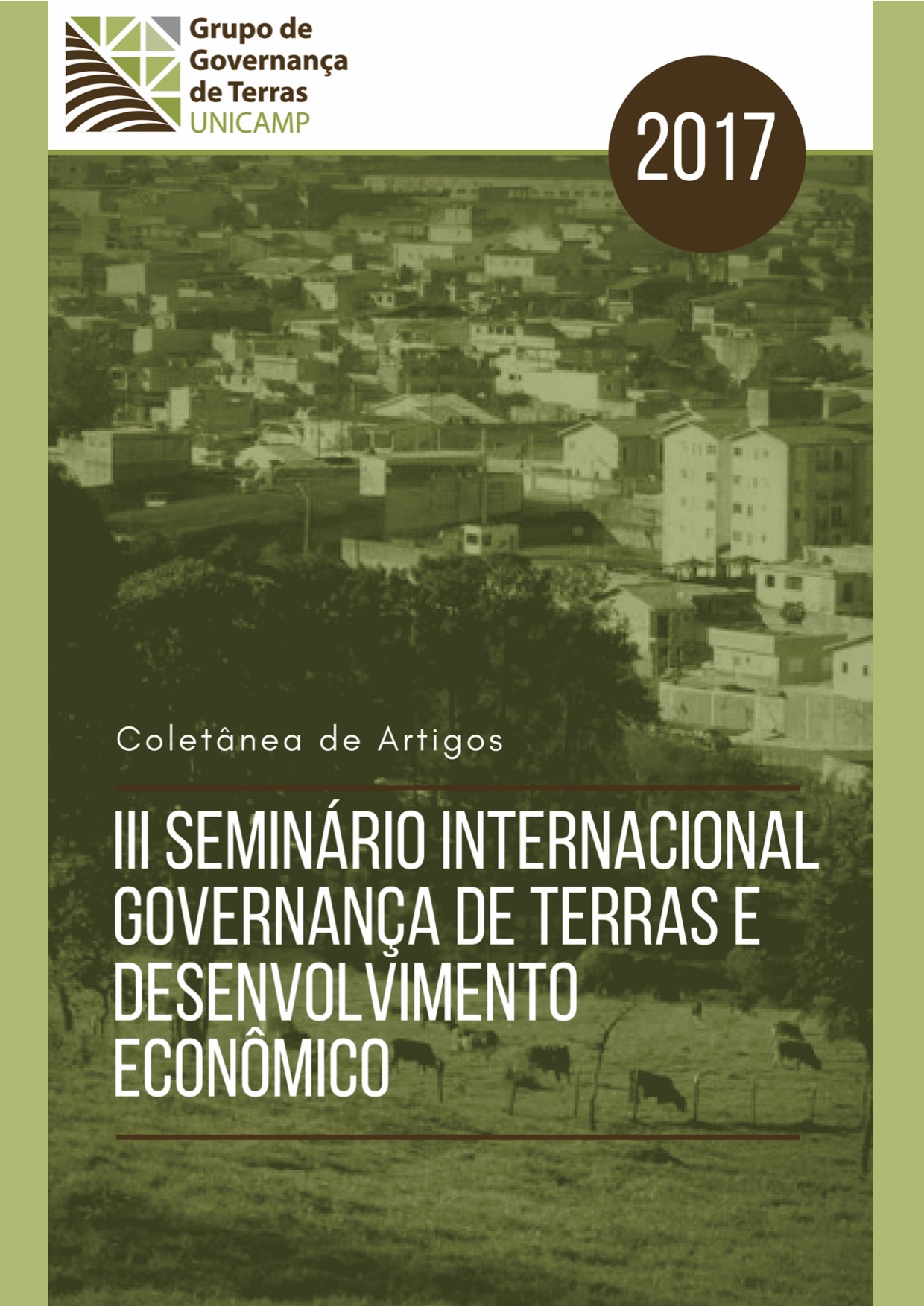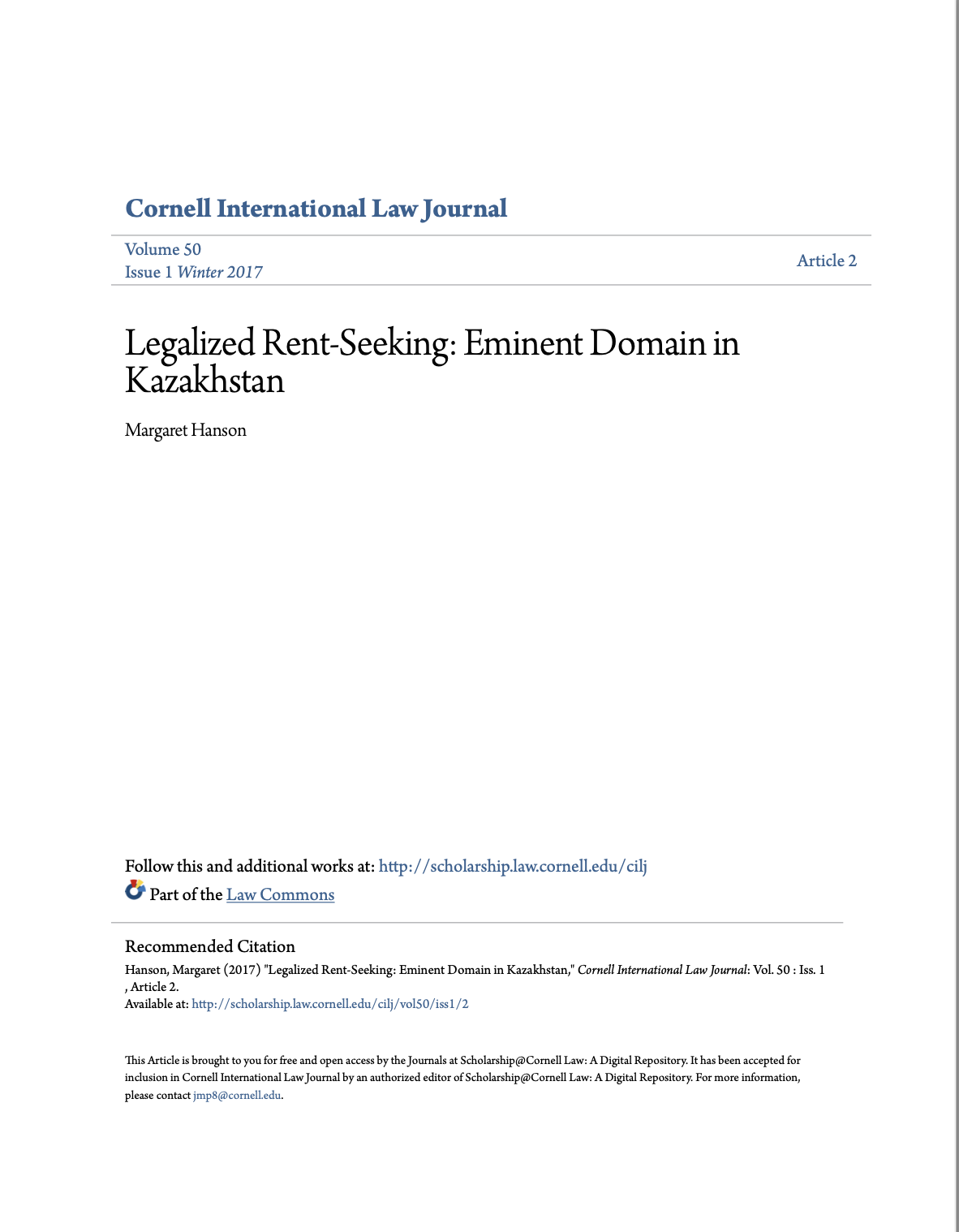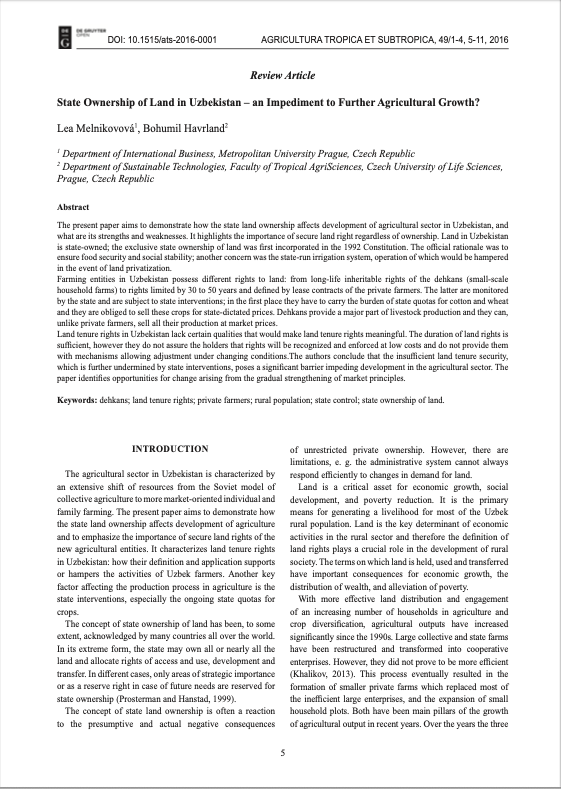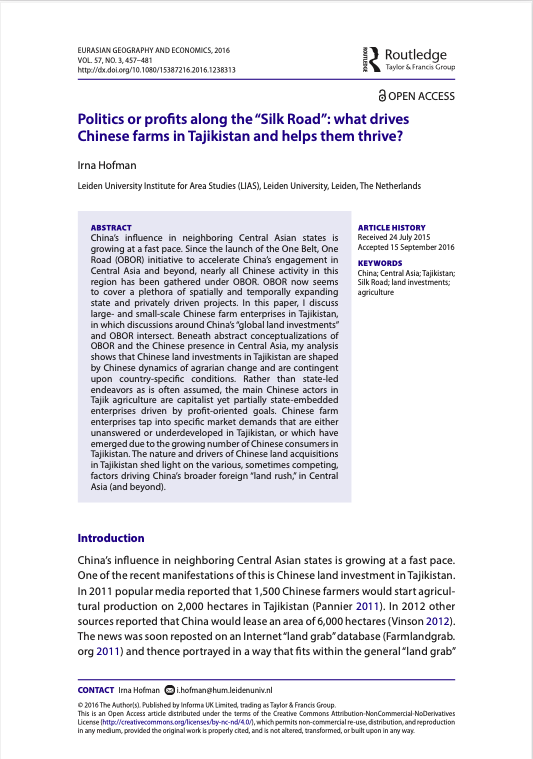Reforming the Land Policies and Land Laws in Sri Lanka
Institute for Constitutional Studies (ICS) commissioned a study on Key Land Laws in Sri Lanka during 2017-2018 in order to identify the priority areas for which the attention of policy makers and the administrators is required. These policy briefs are prepared focusing on the five important areas identified by that study.

